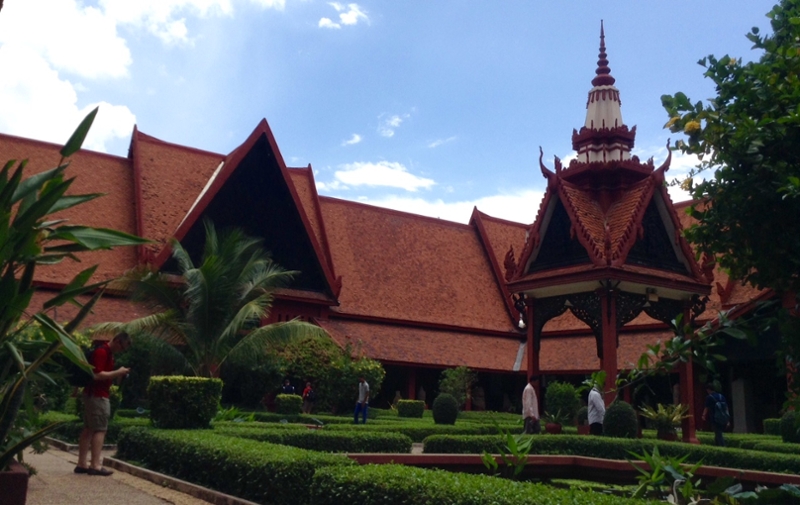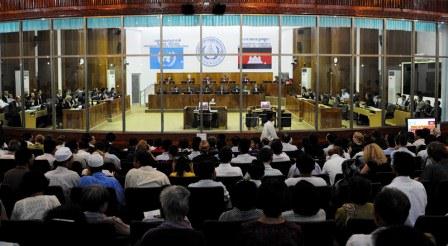Week Two
This week I visited the National Museum and Extraordinary Chambers in the Courts of Cambodia.

The National Museum was relaxing and the centuries old art work impressive. The statues and inscribed stones--dating back many hundreds of years--have held up remarkably well. In contrast, a room dedicated to the Underwater Cultural Heritage reminds viewers of how fragile even recent historical artifacts can be. The war exhibit was decorated with handwritten notes of peace from people all over the world and in many different languages. Part of the process of finding peace involves reconciling the past with the present and getting justice for those harmed during the Khmer Rouge. That is part of the mission of the ECCC, which is a quasi-international tribunal designed to try the leaders of the Khmer Rouge.

Thanks to extreme traffic, getting to the ECCC is a long process, yet there were over a hundred Cambodians present to hear Duch testify as a witness. Kang Kek Iew, better known as Duch, was in charge of Toul Sleng or S-21, where thousands of prisoners were tortured and executed or "smashed" according to the translated euphemism. Duch was the first Khmer Rouge leader convicted by the ECCC. The casualness with which he spoke about the executions was chilling. Yet, the language barriers, evasive answers, and procedural hurdles made the testimony drag on. While the work is important and it is a significant success for Cambodian justice to even have a trial, the court seems to be plagued with inefficiencies. And the accused are aging rapidly. The accused is ninety-one years old. Before long, the remaining leaders will either be dead or incompetent to stand trial. Learn more about the tribunal from the ECCC website and stay up to date with new developments from the Khmer Rouge Trial Monitor's Facebook page.
Since my first blog post, I've been through a great deal. Suffice it to say that the staff at OD Mekong and the American Embassy have my deepest gratitude and respect. Overall, the people of Cambodia have been remarkably open and friendly; however, I regret to say that I will be returning to the United States this weekend to complete the remainder of my internship remotely. As such, my future blog posts will focus mostly on the work I'm doing for ODM. That said, I am still excited about the work I will be doing and the results we will produce.